A new report from Thatcham Research has highlighted that battery electric vehicle (BEV) accident claims are 25.5% pricier and take 14% longer to repair due to evolving industry knowledge.
The report highlights that high voltage (HV) batteries account for a significant portion of the original vehicle value, which poses a threat to the economic model of vehicle repair.
One of the key concerns raised in the report is the limited availability and affordability of repair solutions and post-accident diagnostics for BEVs. Despite the growing popularity of EVs, the industry is still grappling with the development of efficient repair processes and access to necessary tools and equipment.
According to Thatcham Research's data-driven modelling, an estimated 9,400 vehicles in 2022 were potentially involved in collisions that required battery repair. This number is projected to increase significantly, reaching up to 260,000 vehicles annually by 2035.
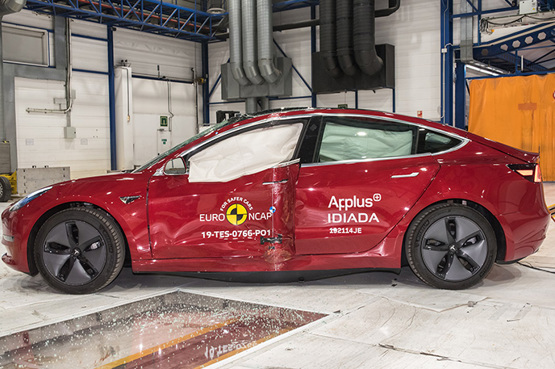 As the EV market continues to expand, the lack of comprehensive repair solutions poses a major challenge for insurers and repair providers - the Institute of the Motor Industry has regularly highlighted the need for support for more technical training as the UK prepares to adapt to zero emissions cars.
As the EV market continues to expand, the lack of comprehensive repair solutions poses a major challenge for insurers and repair providers - the Institute of the Motor Industry has regularly highlighted the need for support for more technical training as the UK prepares to adapt to zero emissions cars.
The complex nature of HV batteries and the evolving technology make it difficult to quickly and cost-effectively repair damaged BEVs. The expertise and infrastructure required to handle these repairs are still in the early stages of development, leading to increased costs and longer repair times compared to internal combustion engine vehicles.
The report emphasizes the urgent need for investment and innovation in the EV repair ecosystem to ensure that affordable and efficient repair solutions are available. As the number of BEVs on the road continues to rise, addressing these challenges will be crucial in maintaining the viability and sustainability of the EV market.
The report’s authors would suggest investment in further cross-industry work to identify more detailed solutions and to make direct recommendations about a range of interventions or support to accelerate those solutions.
The research, published by Thatcham Research and funded by the Government’s innovation agency, Innovate UK, found the cost of HV batteries varies widely from high-end vehicles, currently costing £29,500, to the low-end costing £14,200.
Adrian Watson, Thatcham's head of engineering research, said that without meaningful change, there is a strong likelihood that claims costs will continue to rise disproportionally.
“Much of the motor insurance industry is yet to adapt to mass BEV adoption challenges, and the implications remain unquantified on repair capacity, training and skills, cost, and the lifetime sustainability of BEVs.
“This lack of awareness means many BEVs are often deemed irreparable, leading to premature write-offs because of high battery cost and the lack of value the UK ecosystem can recover from them.”
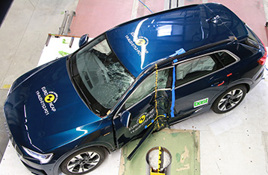 The ‘depreciation curve’ of battery cost versus average used value, says Thatcham, shows that the cost of a replacement battery is more than the used price of the vehicle after only one year.
The ‘depreciation curve’ of battery cost versus average used value, says Thatcham, shows that the cost of a replacement battery is more than the used price of the vehicle after only one year.
"It is vital that credible cross-industry plans are urgently put into place that focus on addressing battery cost, diagnostics, and the creation of a sustainable ecosystem for battery repair," he said.
Government guidelines state that due to fire risk, damaged BEVs awaiting repair should be stored in an outside quarantine area, at a safe distance of 15 metres from other nearby objects.
As such, an outside storage space with capacity for 100 ICE vehicles, would allow for the safe quarantine of just two BEVs, representing a potential 98% reduction in repair capacity, and Thatcham says the cost incurred through following recommended quarantine protocols of 48hrs will add a minimum of £60 to every claim.
If the vehicle cannot be safely stored at the repair centre there will be further costs associated with transportation to and from an alternative location, storage at the alternative location, along with a longer duration of a courtesy vehicle.
Thatcham says it will continue to work closely with Government and vehicle manufacturers to identify solutions to the issues raised by the report.

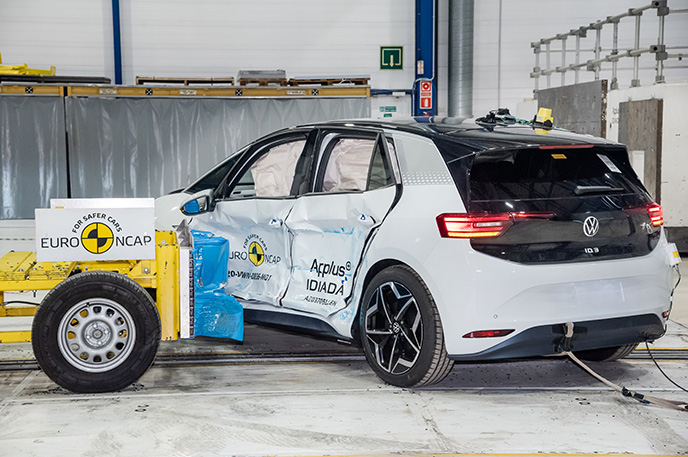




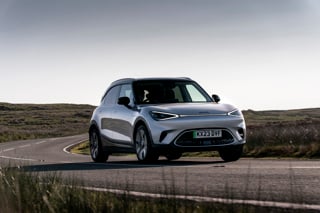

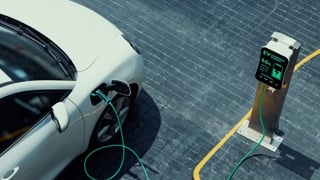















Login to comment
Comments
No comments have been made yet.